Prefabricated concrete countertops have gained popularity in recent years due to their durability, versatility, and unique aesthetic appeal. Here’s a comprehensive overview of prefabricated concrete countertops:
Definition: Prefabricated concrete countertops are precast slabs of concrete that are manufactured off-site in controlled conditions and then delivered to the installation site. They are available in a variety of sizes, shapes, and finishes, making them a customizable option for kitchen and bathroom countertops.
Manufacturing Process: The manufacturing process for prefabricated concrete countertops involves pouring concrete into molds to create slabs of various sizes and shapes. The concrete is reinforced with materials such as fiberglass or steel to improve strength and durability. Once cured, the slabs are polished and finished to achieve the desired appearance.
Customization Options: Prefabricated concrete countertops offer a wide range of customization options, including color, texture, and edge profiles. Pigments can be added to the concrete mix to achieve virtually any color, while various surface treatments such as acid staining or polishing can create unique textures and finishes.
Durability: Concrete countertops are known for their exceptional durability and strength, making them suitable for high-traffic areas such as kitchens and bathrooms. When properly sealed and maintained, prefabricated concrete countertops can last for decades without showing signs of wear or damage.
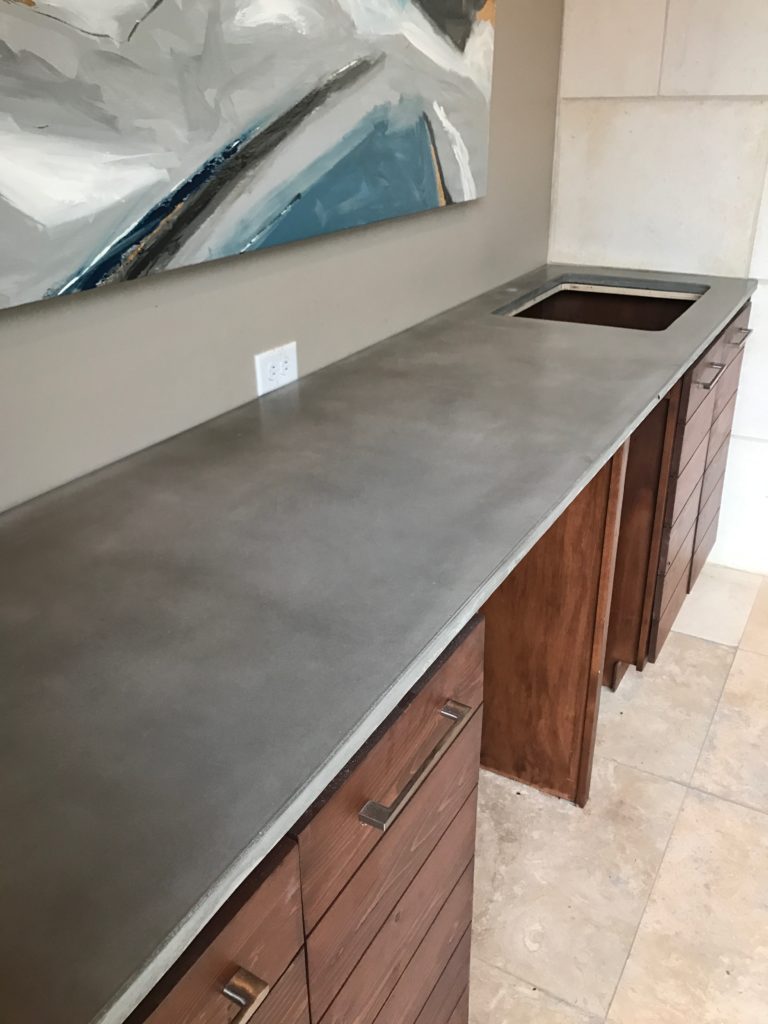
Versatility in Design: Prefabricated concrete countertops offer versatility in design, allowing homeowners to achieve a wide range of looks, from modern and industrial to rustic and traditional. They can be customized to complement any style of cabinetry and décor, making them a popular choice for both residential and commercial applications.
Sealing and Maintenance: Proper sealing is essential to protect prefabricated concrete countertops from stains, scratches, and other damage. Sealants create a barrier that repels liquids and prevents them from penetrating the porous surface of the concrete. Regular maintenance, including cleaning with mild soap and water and resealing as needed, helps prolong the lifespan of the countertops.
Cost Considerations: Prefabricated concrete countertops can be more affordable than custom-poured concrete countertops since they are manufactured off-site in a controlled environment. However, the overall cost will depend on factors such as size, complexity of design, and desired finish.

Installation Process: Installation of prefabricated concrete countertops typically involves measuring the space, placing the countertops, and securing them in place with adhesive or screws. It’s essential to hire a professional installer with experience working with concrete countertops to ensure a proper fit and finish.
Weight Considerations: Concrete countertops are heavier than traditional countertop materials such as laminate or quartz, so it’s important to ensure that the cabinets and supporting structures can handle the weight. Reinforcements may be necessary to support the weight of the countertops, especially for large kitchen islands or overhangs.
Environmental Considerations: Concrete countertops are an environmentally friendly option for homeowners seeking sustainable building materials. Concrete is composed of natural materials such as sand, gravel, and cement, and it can be recycled or repurposed at the end of its lifespan.
Heat Resistance: Prefabricated concrete countertops are heat-resistant, making them suitable for use near stovetops, ovens, and other heat-generating appliances. However, it’s always advisable to use trivets or hot pads to protect the surface from direct contact with hot cookware.
Cracking and Chipping: While concrete countertops are highly durable, they are not completely immune to damage. Cracking and chipping can occur if the countertops are subjected to excessive force or impact. It’s important to handle and maintain prefabricated concrete countertops with care to prevent damage.

Repairability: In the event of minor damage such as scratches or small chips, prefabricated concrete countertops can be repaired using specialized patching materials and techniques. For more extensive damage, professional repair or replacement may be necessary.
Longevity: With proper care and maintenance, prefabricated concrete countertops can last for many years, adding value and beauty to your home. Regular sealing and routine maintenance help protect the surface and maintain its appearance over time.
Resale Value: Installing prefabricated concrete countertops can increase the resale value of your home, as they are considered a desirable feature by many homebuyers. Their durability, versatility, and unique aesthetic appeal can make your kitchen or bathroom stand out in a competitive real estate market.
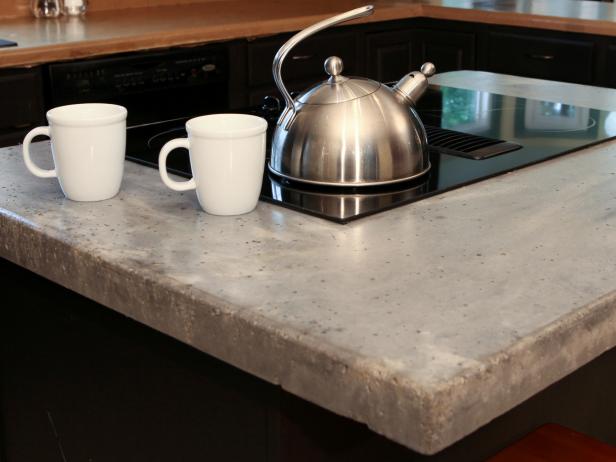
Are prefabricated concrete countertops prone to staining?
Prefabricated concrete countertops are porous and can be prone to staining if not properly sealed. It’s essential to apply a high-quality sealant to protect the surface from spills and stains and to clean up any spills promptly.
Can I install prefabricated concrete countertops myself?
While it’s possible to install prefabricated concrete countertops yourself, it’s recommended to hire a professional installer with experience working with concrete countertops. Proper installation is crucial to ensure a proper fit and finish and to avoid potential issues such as cracking or improper sealing.
How often do prefabricated concrete countertops need to be resealed?
The frequency of resealing prefabricated concrete countertops depends on factors such as usage and exposure to moisture. As a general guideline, it’s recommended to reseal concrete countertops every 1-3 years to maintain their appearance and protection.
Can prefabricated concrete countertops be used outdoors?
Prefabricated concrete countertops can be used outdoors in covered or protected areas, but they are not recommended for direct exposure to harsh weather conditions such as rain, snow, or extreme heat. Outdoor concrete countertops should be properly sealed and maintained to protect them from the elements.
Do prefabricated concrete countertops require special cleaning products?
Prefabricated concrete countertops can be cleaned with mild soap and water or a pH-neutral cleaner designed for use on concrete surfaces. Avoid using abrasive cleaners or harsh chemicals that can damage the sealant and dull the finish of the countertops.

Concrete Kitchen Countertops Finishing
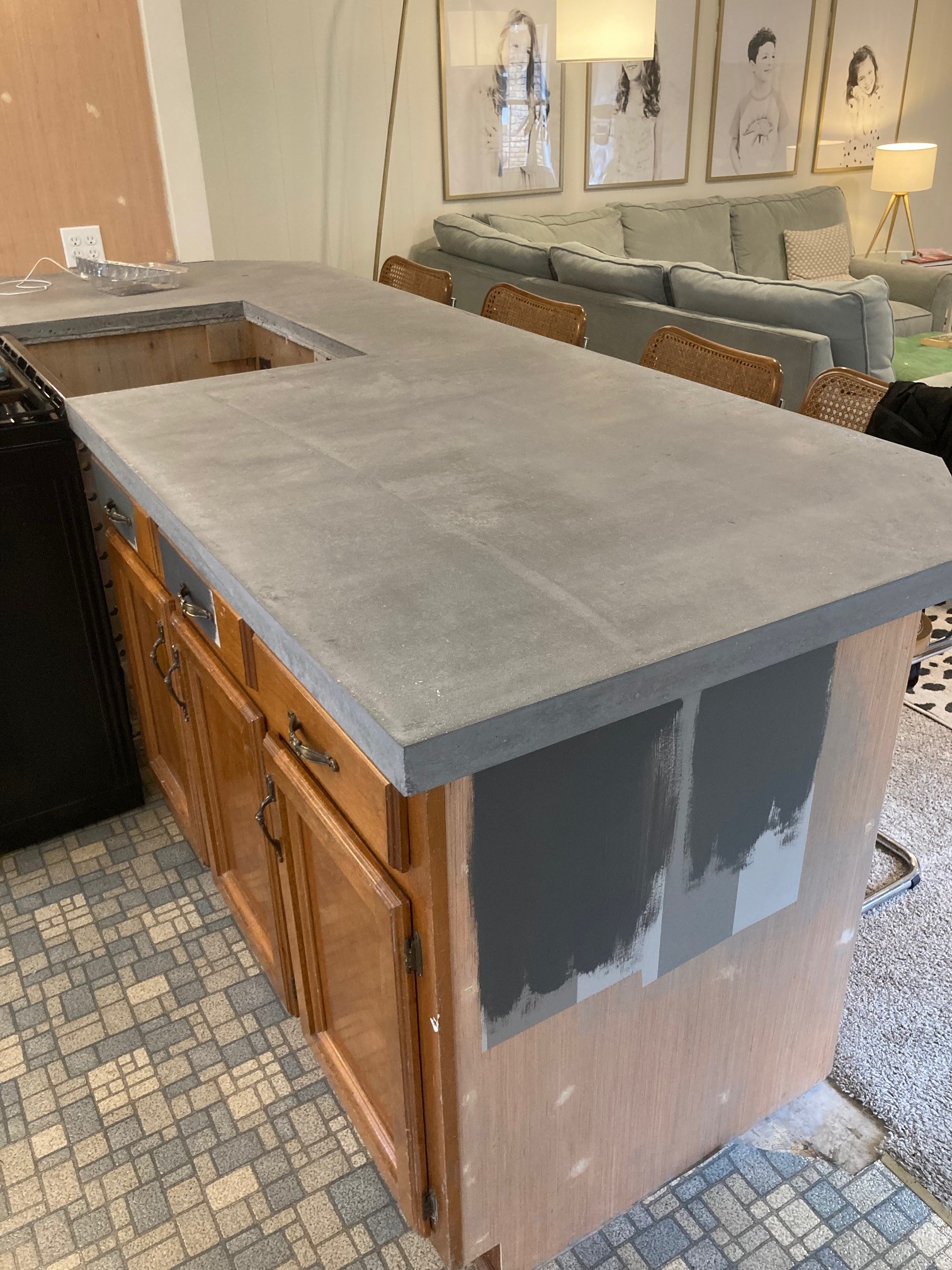
DIY Concrete Countertops Project
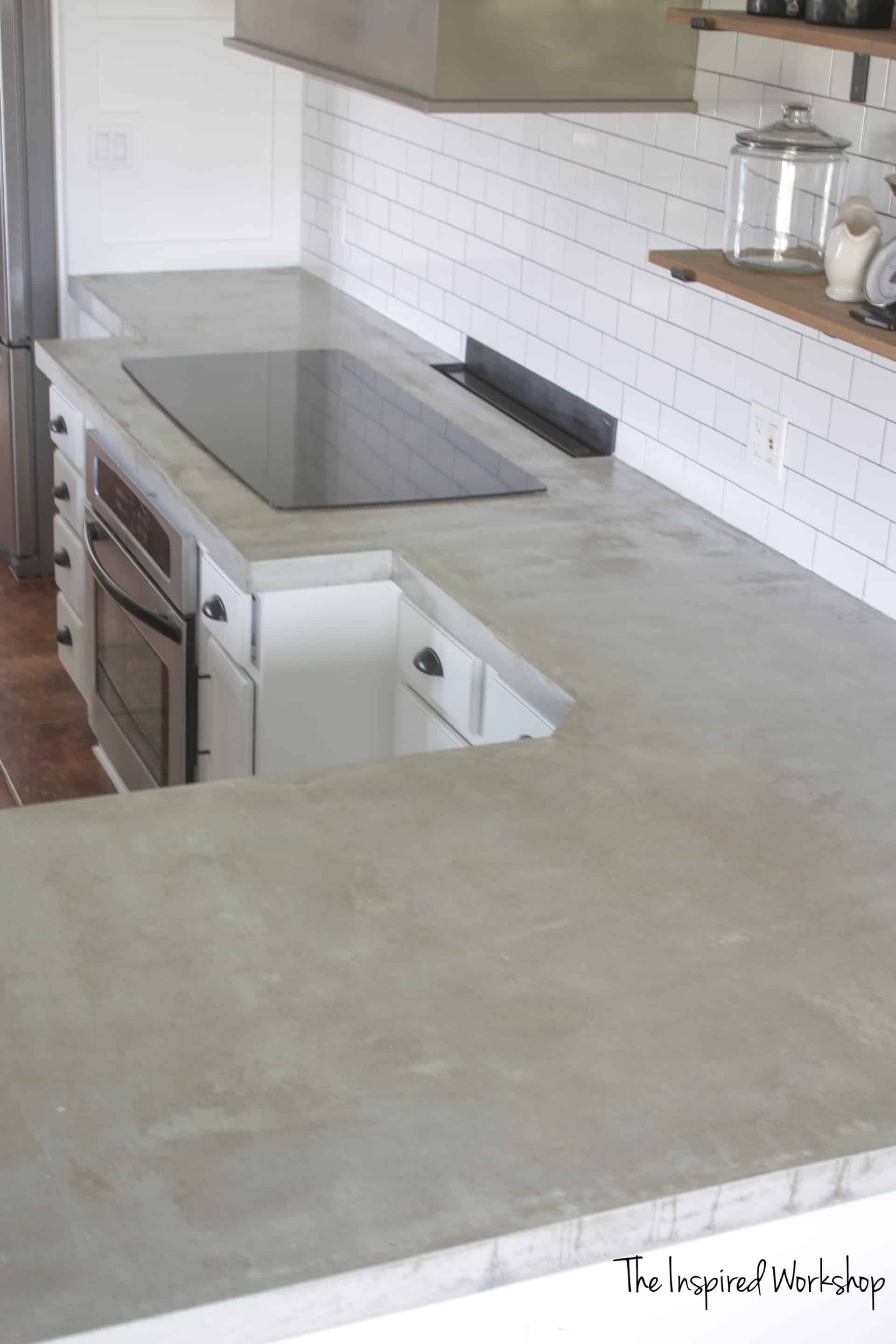
How to Make Concrete Countertops CHENG Concrete Exchange
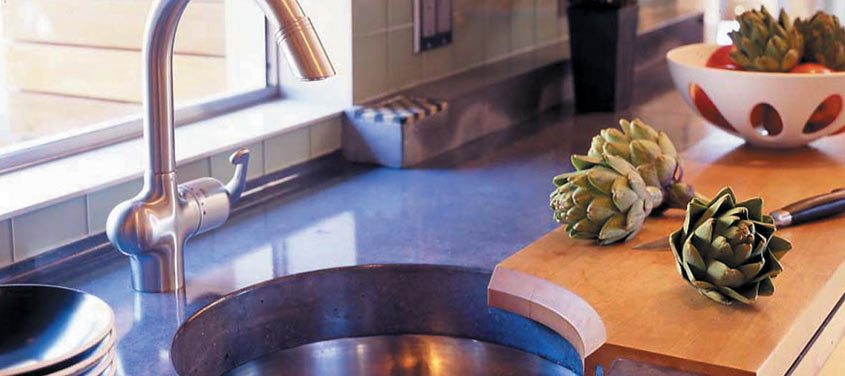
Concrete Countertops Beton Studio
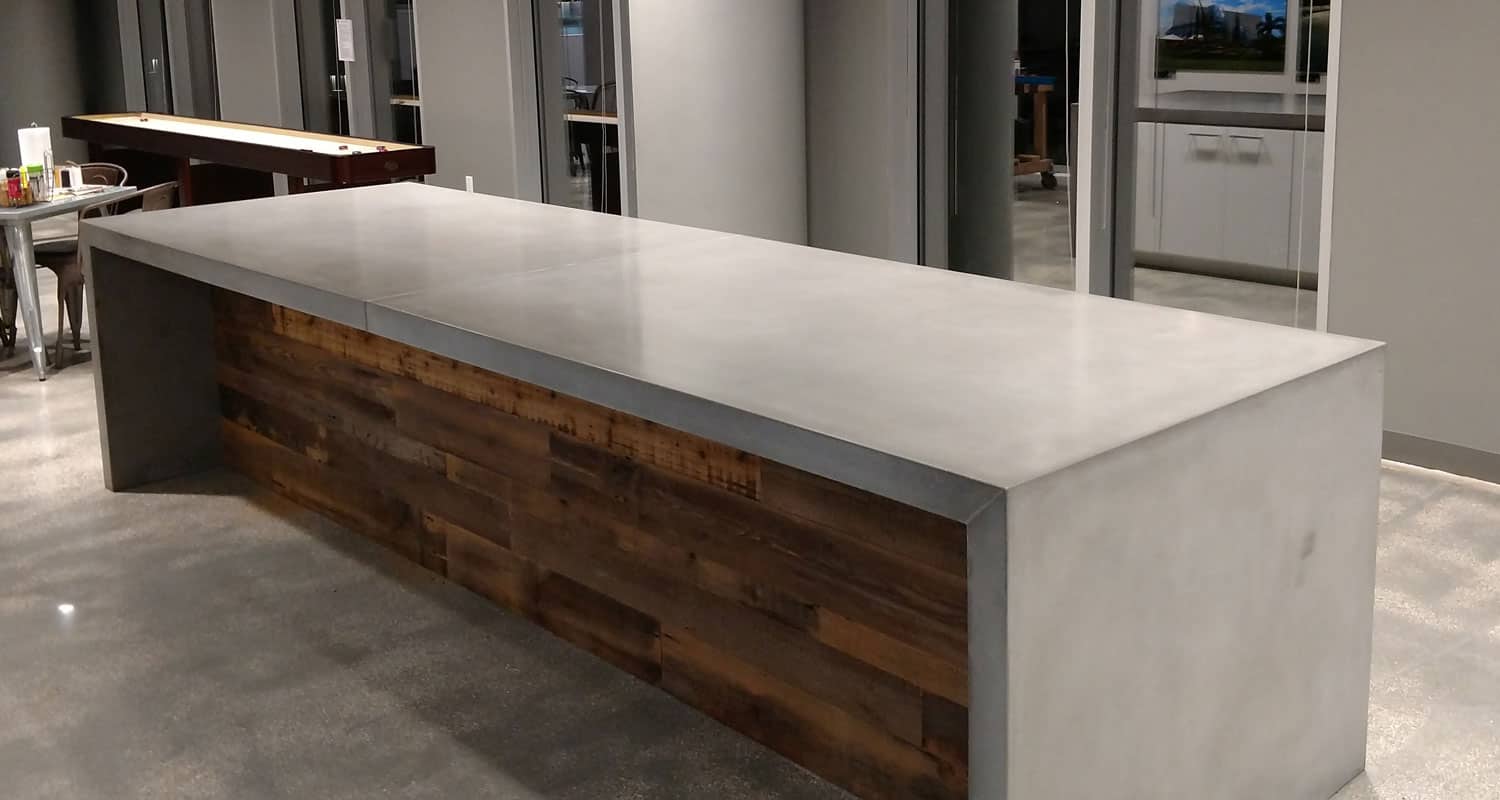
How to Build a Concrete Countertop
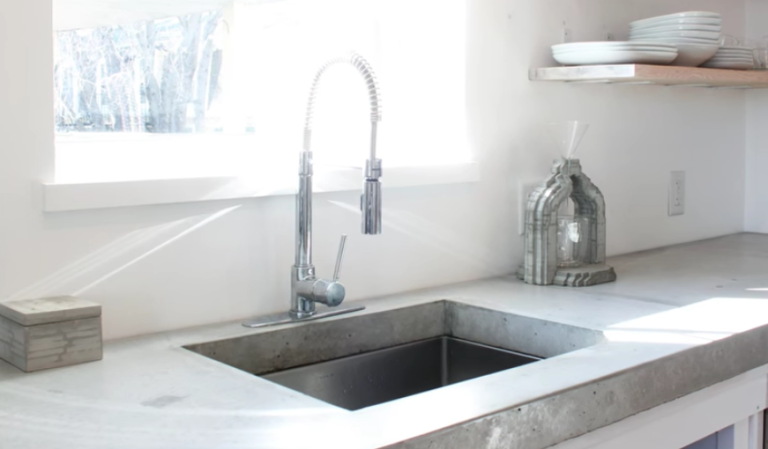
Related articles:
- Concrete Countertop Overlay
- Black Concrete Countertops
- Marble Look Concrete Countertops
- Light Grey Concrete Countertops
- Concrete Countertop Design Ideas
- Light Colored Concrete Countertops
- Epoxy On Concrete Countertop
- Concrete Countertops Designs
- Concrete Countertops That Look Like Wood
- White Concrete Countertops